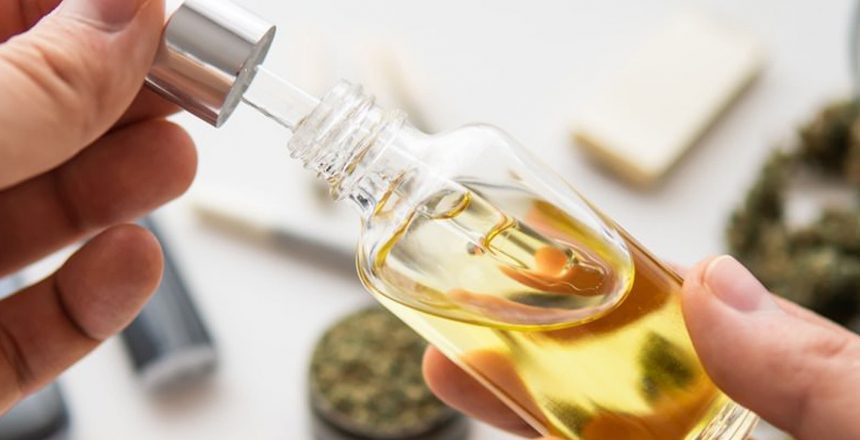As the popularity of cannabinoids continues to grow, individuals are seeking alternatives to traditional delta-9 THC. Two such alternatives that have gained significant attention are delta 8 THC and CBD. While both compounds are derived from hemp, they offer distinct properties and potential benefits. In this comprehensive guide, we will compare delta 8 THC and CBD in terms of their chemical structures, mechanisms of action, potential effects on the body and mind, legal status, therapeutic applications, safety considerations, and more. By the end, you will have a comprehensive understanding of the similarities and differences between delta 8 THC and CBD, allowing you to make informed decisions about their use.
Chemical Structures and Origins
Delta 8 THC and CBD are both cannabinoids, but they differ in their chemical structures and origins. Delta 8 THC is a psychoactive compound that closely resembles delta-9 THC, with a slight difference in the placement of a double bond. CBD, on the other hand, is a non-psychoactive compound that shares the same chemical formula as THC but with a different arrangement of atoms. Both delta 8 THC and CBD can be derived from hemp plants, which are high in CBD and low in delta-9 THC.
Mechanisms of Action
Delta 8 THC and CBD interact with the body’s endocannabinoid system (ECS), but they do so in different ways. Delta 8 THC binds to CB1 receptors, predominantly found in the central nervous system, resulting in psychoactive effects. CBD does not directly bind to these receptors but instead interacts with various receptors and pathways in the ECS, influencing their activity. This difference in binding affinity contributes to the contrasting effects of delta 8 THC and CBD.
Potential Effects on the Body and Mind
Delta 8 THC and CBD offer distinct effects on the body and mind. Delta 8 THC is known for its psychoactive properties, although its effects are generally milder and more balanced compared to delta-9 THC. Users often describe the effects of delta 8 THC as providing relaxation, euphoria, and mental clarity. CBD, on the other hand, is non-intoxicating and does not produce a high. It is commonly associated with promoting a sense of calmness, reducing anxiety, and supporting overall well-being.
Legal Status
The legal status of delta 8 THC and CBD can vary depending on local regulations. In the United States, CBD derived from hemp with a THC concentration of 0.3% or less is federally legal under the provisions of the 2018 Farm Bill. However, regulations regarding delta 8 THC can vary from state to state, and it is important to research and understand the laws in your specific jurisdiction. Some states have implemented restrictions or limitations on the sale and use of delta 8 THC.
Therapeutic Applications
Both delta 8 THC and CBD have shown potential therapeutic applications, although more research is needed to fully understand their effects and mechanisms of action. Delta 8 THC may offer benefits such as pain relief, appetite stimulation, and relaxation. CBD has been studied for its potential anti-inflammatory, analgesic, anxiolytic, and neuroprotective properties. It is important to note that individual responses to these cannabinoids may vary, and it is advisable to consult with a healthcare professional for personalized guidance.
Safety Considerations
Safety considerations are important when using delta 8 THC and CBD. Delta 8 THC, being psychoactive, may cause intoxicating effects and could potentially impair cognitive and motor functions. It is crucial to use delta 8 THC responsibly, follow dosage guidelines, and avoid driving or operating machinery under its influence. CBD, on the other hand, is generally well-tolerated, with minimal reported side effects. However, it can interact with certain medications, so it is advisable to consult with a healthcare professional if you have any concerns.
Bioavailability and Delivery Methods
Bioavailability refers to the amount and rate at which a substance is absorbed into the bloodstream and becomes available for the body to use. When comparing delta 8 THC and CBD, bioavailability can vary depending on the delivery method. For example, inhalation methods such as vaping or smoking can provide high bioavailability for both compounds, allowing for quick absorption. On the other hand, oral methods like edibles or capsules may have lower bioavailability due to the digestive process. Understanding the bioavailability of delta 8 THC and CBD can help individuals choose the most suitable delivery method for their needs.
Entourage Effect and Synergistic Effects
The entourage effect is a concept that suggests the combination of different compounds in cannabis, including cannabinoids, terpenes, and other phytochemicals, may have synergistic effects. While delta 8 THC and CBD can be used individually, some individuals prefer to combine them to potentially enhance their therapeutic benefits. By leveraging the entourage effect, the combined use of delta 8 THC and CBD may offer a broader range of effects and potentially optimize the desired outcomes.
Drug Testing Considerations
Another important aspect to consider when comparing delta 8 THC and CBD is their impact on drug testing. Delta 8 THC, being a psychoactive compound, can potentially result in a positive drug test for THC. It is advisable to exercise caution when using delta 8 THC products, especially if you are subject to regular drug testing. CBD, on the other hand, typically does not result in a positive drug test for THC since it is a non-intoxicating compound. However, it is crucial to ensure that CBD products contain only trace amounts of delta-9 THC, as higher concentrations can still trigger a positive result.
Research and Legal Landscape
Research on both delta 8 THC and CBD is ongoing, and our understanding of these cannabinoids continues to evolve. While CBD has received more attention and has a larger body of research supporting its potential benefits, delta 8 THC is a relatively newer area of study. It is important to stay updated on the latest research findings and any changes in the legal landscape regarding these cannabinoids. By staying informed, individuals can make informed decisions and ensure compliance with local laws and regulations.
Conclusion
Delta 8 THC and CBD offer distinct properties and potential benefits for individuals seeking alternatives to traditional delta-9 THC. While delta 8 THC is a psychoactive compound with milder effects, CBD is non-intoxicating and known for its calming properties. Both cannabinoids interact with the endocannabinoid system and may have therapeutic applications, although more research is needed to fully understand their effects. It is important to understand the legal status, potential effects, and safety considerations of delta 8 THC and CBD before incorporating them into your wellness routine. By staying informed and consulting with healthcare professionals, you can make educated decisions about using these cannabinoids and explore their potential benefits in a responsible manner.
Monika Wassermann is a doctor and a freelance writer based in the UK who lives with her cat Buddy. She writes across several verticals, including life, health, sex and love, relationships and fitness. Her three great loves are Victorian novels, Lebanese cuisine, and vintage markets. When she’s not writing, you can find her trying to meditate more, weightlifting, or wandering around in town.
[email protected]
- Fizzy Fun: Exploring Melo THC Beverages! - April 22, 2024
- Exploring Jaw Slimming Techniques: Insights from Dr. Laura Geige - April 1, 2024
- Lip Fillers, Botox, Dermal Fillers, Anti-Wrinkle Injections in Arkley EN5 - March 22, 2024




